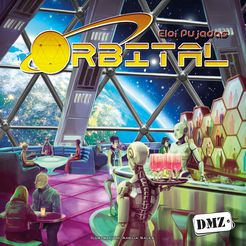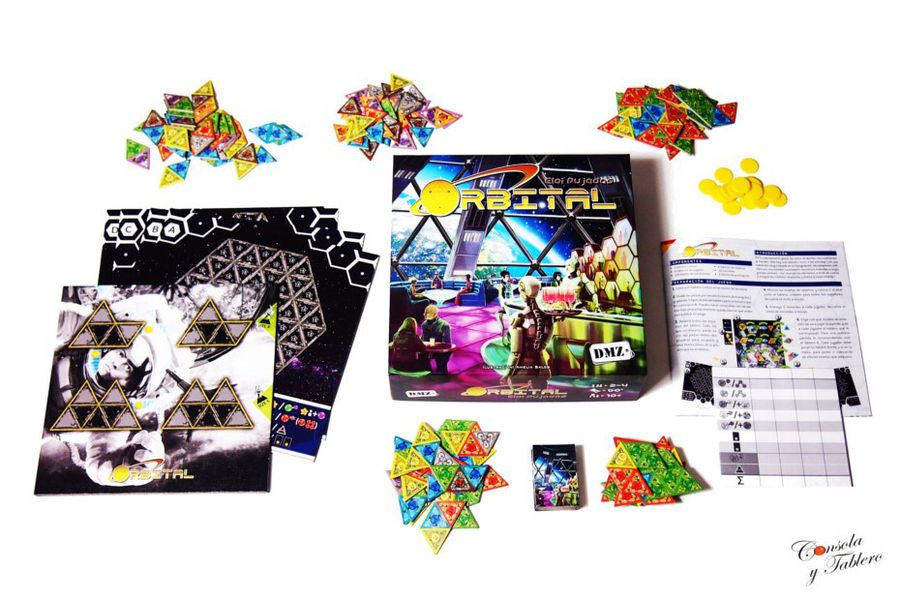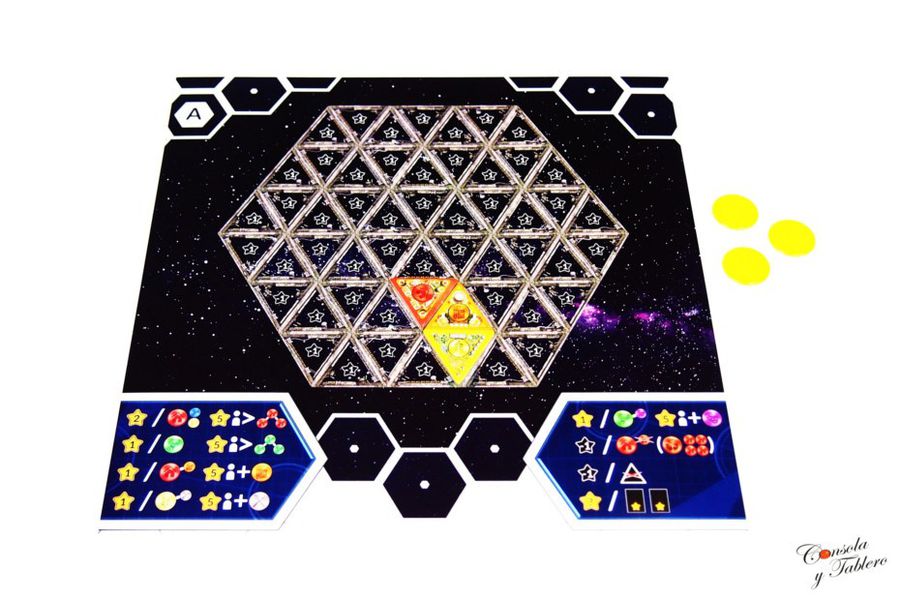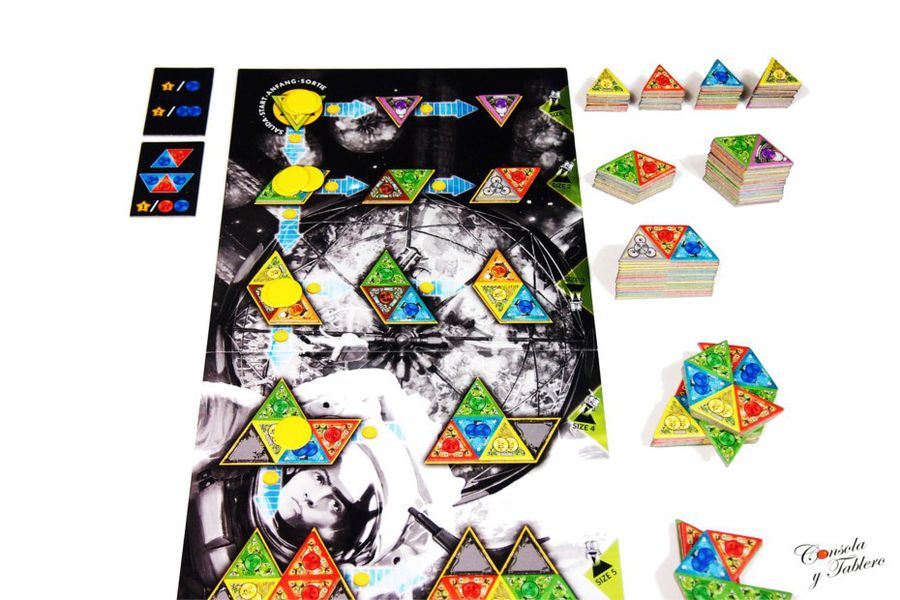Beschrijving
Min leeftijd: +8
Aantal spelers 2 a 4
Gem speelduur 30 a 45 min
Het is het jaar 2073 en de gevolgen van de opwarming van de aarde zijn cruciaal geworden. De polen smelten en de zeespiegel stijgt. Er is maar één oplossing: kijk naar de sterren. Met een nieuwe, op driehoeken gebaseerde bouwtechnologie zijn orbitale stations nu realiteit…
In Orbital ontwerp en bouw je je eigen orbitale station en maak je het zo zelfvoorzienend mogelijk. Jouw bevolking zal huizen nodig hebben, die op hun beurt energie nodig hebben. Boerderijen, tuinen, faciliteiten: er zijn veel elementen waarmee rekening moet worden gehouden. Verkrijg de gebouwen die je nodig hebt en ontwerp het beste station om de winnaar te worden!
De speltegels bestaan uit 1 tot 5 gebouwen in de vorm van driehoeken. Spelers moeten proberen de stukken te kopen die het beste passen uit de stukken die beschikbaar zijn op het centrale bord en proberen deze op de meest winstgevende manier op hun station te plaatsen. Afhankelijk van hun grootte en de positie op het bord zijn stukken duurder of goedkoper in aanschaf. Spelers betalen ook door hun geld achter te laten op de stukken die ze weigeren, in een poging het gewenste stuk te bemachtigen. Neem een stuk dat iedereen heeft afgewezen, en je krijgt veel nuttig geld!
The year is 2073, and the effects of global warming have become critical. The poles are melting, and the sea level is raising. There’s only one solution: Look to the stars. With a new triangle-based building technology, orbital stations are a reality now…
In Orbital, you design and build your own orbital station and make it as self-sustaining as possible. Your population will need houses, which will in turn need energy. Farms, gardens, facilities — there’s a lot of elements to take into account. Get the buildings you need, and design the best station to be the winner!
The game tiles are composed by 1 to 5 buildings in the shape of triangles. Players should try to buy the pieces that fit best from the ones available on the central board and try to arrange them on their station in the most profitable way possible. Depending on their size and the position on the board, pieces are more or less expensive to acquire. Also, players pay by leaving their money on the pieces they reject to try to get to the one they want. Take a piece everyone rejected, and you will get a lot of useful money!








